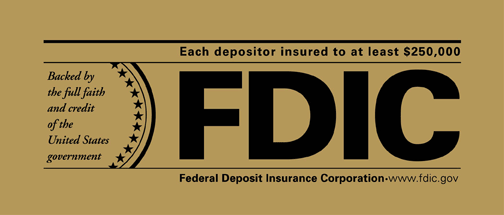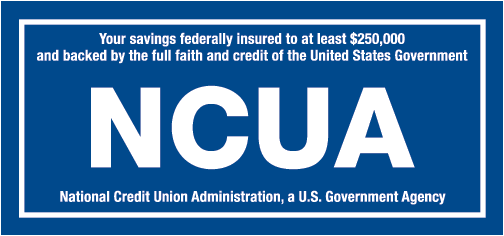Understanding Savings Accounts
- August 18, 2017
- by Emily

One of the simplest tenets of wealth creation is to “pay yourself first.” In other words, put money into your savings account. Most banks automatically open a regular savings account whenever you open a checking account, so you almost certainly have one. Savings accounts are an excellent way to stash money for short-to-medium-term savings goals, like a vacation or expensive home improvements.
Unlike checking accounts, savings accounts will generally earn interest. How much interest depends on the type of savings account. That’s right: there is more than one option when it comes to opening a savings account. Here’s a look at the primary types of savings accounts.
Regular Savings Account
This is the account that is most likely linked to your checking account. Savings accounts do earn interest, but you’re probably not noticing a huge increase in your account balance thanks to it. The national average interest rate on regular savings accounts as of 2017 is 0.06%. That means if you stash $10,000 in your savings account for ten years, you’ll have earned $60 in interest. That's not nothing, of course, but it’s not exactly an investment strategy. In fact, historically the rate of return you’d get in a regular savings account is well below inflation. So if you left your money in a savings account for ten years, the amount of goods you can actually purchase may be a lot less than before. For more about inflation, see our article Why Prices Usually Go Up.
This is not to say regular savings accounts don’t have value. Unlike more specialized accounts, everyone should have one. There are generally no or low minimum balances and monthly fees, and there is no restrictions on how frequently you use the money in your savings account. Because it’s linked to your checking account, it’s also a perfect "holding pen" for all of your savings, whether it’s money you intend to invest or money you’re saving for a new roof.
Money Market Accounts
Like your checking and savings account (and unlike investment accounts), money market accounts (not to be confused with money market mutual funds, which are very different) are insured by the FDIC. That’s good news if you’re risk-adverse in your investment strategy. Money market accounts get better interest rates than regular savings accounts, but not by much. The average interest rate on money market accounts, according to the FDIC data as of 2017, is 0.08%. So if you have $10,000 in a money market account for ten years, you’ll earn $80 in interest.
Money market accounts come with some drawbacks. They often have much higher minimum balances and initial deposit requirements. There are also limits on how much you can access your money—for example, you might be limited to six transactions per month.
Online-Only Savings and Money Market Accounts
Online-only banks offer both regular savings accounts and money market accounts with much higher interest rates—as high as 1.30% (as of August 2017). To use our example with $10,000 again, at a rate of 1.30% you’ll have earned $1,379. That’s a sizable difference.
One disadvantage online-only banks have is if you do your primary banking with another institution, you won’t be able to look at your whole financial picture on one dashboard. Otherwise, however, they generally have the same restrictions and policies on regular savings accounts and money market accounts.
In addition, the higher interest rate comes more risk. The way the online banks are able to afford paying you more interest is they have a different cost structure than a big bank (less overhead, more automation). They also effectively ‘gamble’ with your money more aggressively than a normal bank so they can generate a larger return. While they may be FDIC insured, keep in mind there is no ‘free lunch’ on Wall Street, and higher return always implies higher risk.
Nerd Wallet has a listing of popular Online-Only Savings accounts.
Certificates of Deposit
Certificates of deposit (CDs) are the type of the savings account with the highest interest rates, but also the biggest restrictions. You commit your money for a set period of time—the longer the time, the higher the interest rate—and can’t access your money without paying a penalty until the CD’s maturity rate. The top interest rates for CDs are around 2.25% (August, 2017), substantially higher than even the online-only savings accounts. In the example of $10,000 saved for 10 years, you’d earn $2,492 at that interest rate.
Even with the high interest rates, CDs are often also available with FDIC insurance. That makes them a worry-free way to save money.
Are checking and savings account safe?
Checking and savings accounts are insured in the US by the FDIC (banks) or the NCUSIF (credit unions). Amounts of $250,000 are insured by the federal government should the bank or credit union collapse. The amount can go higher in certain cases, such as joint accounts.
Look for the following logos associated with the accounts:
These programs were setup as a result of the great depression to help the public keep confidence in banks and credit unions. The idea is the deposit insurance will prevent against bank runs. A bank run happens when a large percent of the bank’s customers get in line to withdraw their deposits in cash. Bank runs accelerate financial downturns because they wipe out the bank’s capital. All banks are leveraged - they loan out more than they actually hold in deposits. So when a large enough group of customers start to withdraw their money the bank quickly runs out of money. The people who still had their money stuck in the bank would lose everything, at least before FDIC/NCUSIF came out.
One thing to think about when it comes to money and how safe it is - the dollar is not backed by gold or any other material asset. Society’s confidence in the financial system, and that alone, is actually what makes the dollar worth something. The value is essentially imaginary and is only as good as what the next person sees in it.
The bottom line is that you definitely need a regular savings account, but if you’re interested in high rates you might consider CDs. If you’d like your savings accounts to earn more you could consider an online-only bank - but check out their reputation carefully. In any case, make certain the deposits are fully insured by the FDIC/NCUSIF and as a wise person once said “don’t put all your eggs in one basket”.










